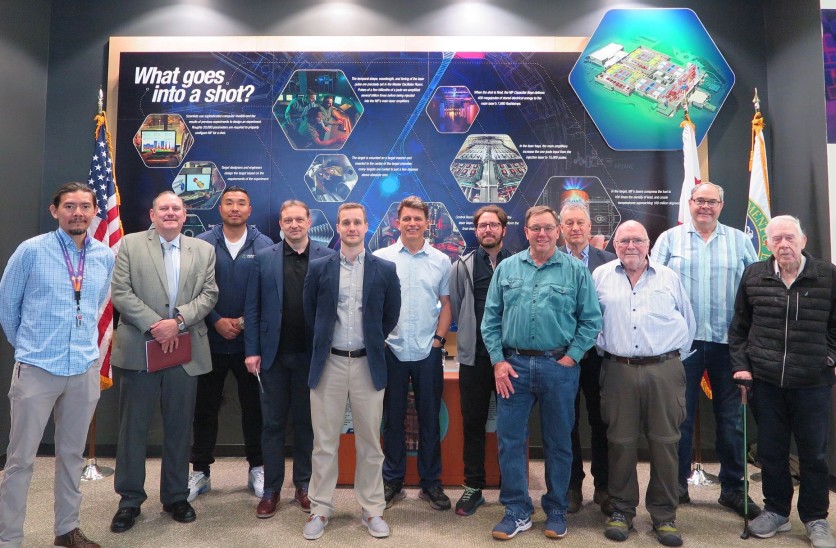
In an era where geopolitical tensions seem to constantly be on the rise, navigating the intricacies of global nuclear policy can be a challenge. Now, nuclear fuel processing company LIS Technologies is working toward a more peaceful, stable nuclear future—and it starts with bringing nuclear fuel development back home.
LIS Technologies uses the patented CRISLA (Condensation Repression Isotope Selective Laser Activation) method to enrich uranium, making it suitable for use as nuclear fuel. The process, which uses highly efficient lasers, was developed in the U.S. However, international shifts in the 1980s and 1990s effectively halted the domestic development of CRISLA and nuclear power in the U.S. at large.
"In 1989, the iron curtain over the Soviet Union came down, and the world markets became available for Russia," explains LIS Technologies CEO and co-founder Christo Liebenberg.
"Russia is a huge producer of enriched uranium," Liebenberg continued, "and they started flooding the world markets because they needed money to boost their economy. So they started selling enriched uranium for less than half price compared to what it was. The Megatons-to-Megawatts program (1993 to 2013) resulted in Russia converting 500 metric tons of 'excess' weapons-grade uranium (enough for 20,000 warheads) into 15,000 metric tons of low enriched uranium (LEU), which was purchased by the US for use in its commercial nuclear power plants."
Cheap enriched uranium might have saved the United States money, but it spelled disaster for the stateside nuclear industry—and threatened energy security as a whole.
"This event collapsed the entire U.S. nuclear industry," says Liebenberg. "So that sunk many, many technologies. Our own CRISLA technology had been successfully demonstrated at that point. But they decided, 'Why should we develop this further? We could just buy it on the international market.'"
"So that's why CRISLA and other enrichment technologies were stopped in the 1990's—ultimately, the U.S. became dependent on imported Russian nuclear fuel," Liebenberg concluded.
That remained the status quo until 2022. Relations with Russia deteriorated because of the country's invasion of Ukraine, and the United States subsequently banned the import of Russian-enriched uranium. The Prohibiting Russian Uranium Imports Act was finally signed into law in May 2024.
"The ban has caused a disruption in the supply chain," says Liebenberg. "Companies are currently building these multi-billion-dollar small modular reactors and are relying on cheap Russian HALEU, but now, they don't have any reliable supplier of nuclear fuel to meet their growing demand. This has become their single biggest risk moving forward."
Anticipating the nuclear renaissance, Liebenberg and co-founder Jeff Eerkens—who invented the CRISLA process—formed CRISLA, Inc. in 2020 to address the need for domestic nuclear power.
"Notable advanced nuclear technology entrepreneur Jay Yu later joined Christo and Jeff in pursuit to rebirth the only U.S.-origin and patented technology for laser uranium enrichment. He realized the potential of CRISLA's technology," he shared.
Jay Yu serves as Executive Chairman and President, Christo Liebenberg as the CEO, and Jeff Eerkens as CTO. As the company progresses with what they believe is up to an 8-year roadmap to a full commercial facility, the United States will slowly become self-sufficient in terms of energy and energy security. And in a world of shifting alliances, that kind of self-sufficiency is vital.
However, that's not the only benefit of reviving the United States nuclear industry. In 1968, the United Nations created the Treaty on the Non-Proliferation of Nuclear Weapons.
The treaty's main goals are to support the peaceful use of nuclear technology and reduce the proliferation of weapons technology. By developing and exporting safe nuclear fuel, LIS Technologies is furthering the treaty's important mission.
In accordance with national and IAEI regulations, LIS Technologies will only produce nuclear fuel for peaceful applications. However, that fuel is concentrated (enriched) enough to power new, more efficient advanced nuclear reactors.
"Through LIS Technologies Inc, the CRISLA process can produce nuclear fuel at a discounted rate for the existing fleet of civilian nuclear power reactors and also the next generation of advanced reactors, small modular reactors (SMRs), and microreactors," says Liebenberg.
LIS Technologies also intends to export the fuel after necessary U.S. government approvals to countries around the world, which is a key part of reducing nuclear weapons proliferation. By exporting the fuel (and not the technology used to produce it), LIS Technologies can help other countries meet their clean energy needs while reducing the risk of the technology falling into the wrong hands.
Liebenberg is fully aware that CRISLA has the potential to do good in the world, but he also realizes that the technology has to be secured.
"Our goal is to reinforce U.S. energy security and sovereignty," he says. "So that's why this technology will have to be protected. We have met with and are in discussions with several government agencies in this regard. Our goal is to use our technology only for peaceful use while being 100% transparent with the government."
Both Liebenberg and Eerkens have dedicated most of their lives to the development of uranium enrichment technology using lasers. Liebenberg has extensive experience in the development and management of laser enrichment programs, and Eerkens is considered to be the father of laser enrichment.
They know the tremendous power of this technology better than anyone, and both are equally adamant that the CRISLA process and other nuclear technology should only be used for peaceful purposes.
The company intends to produce low-enriched uranium (LEU), which is up to 5% uranium-235, as well as high-assay low-enriched uranium (HALEU), which is up to 20% uranium-235.
ⓒ 2026 TECHTIMES.com All rights reserved. Do not reproduce without permission.





